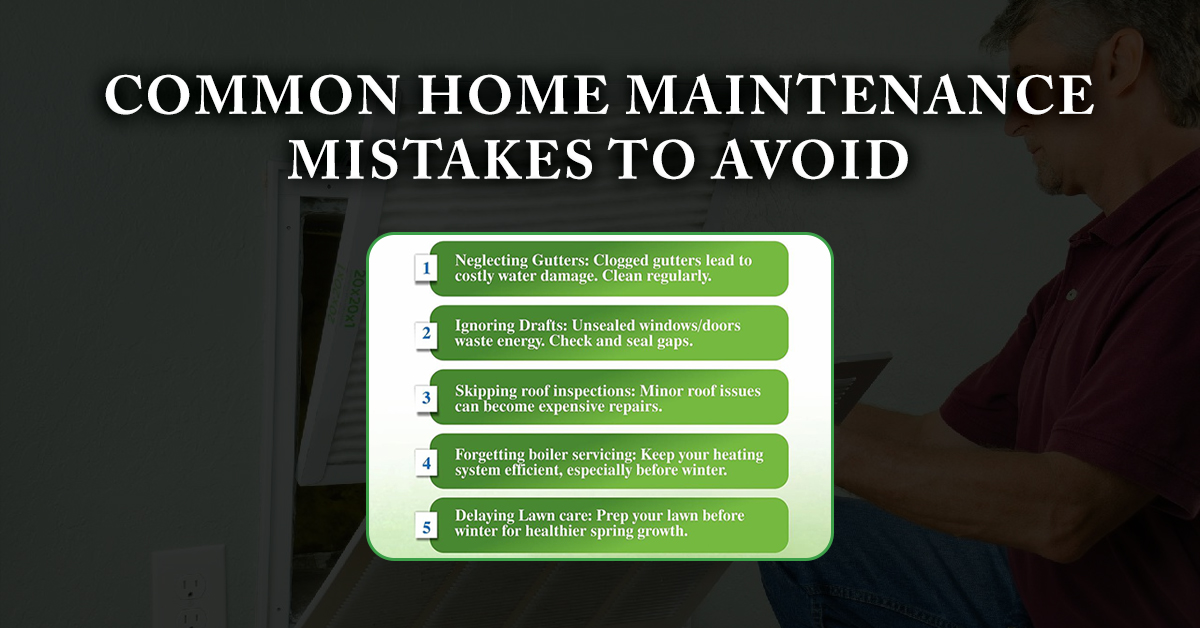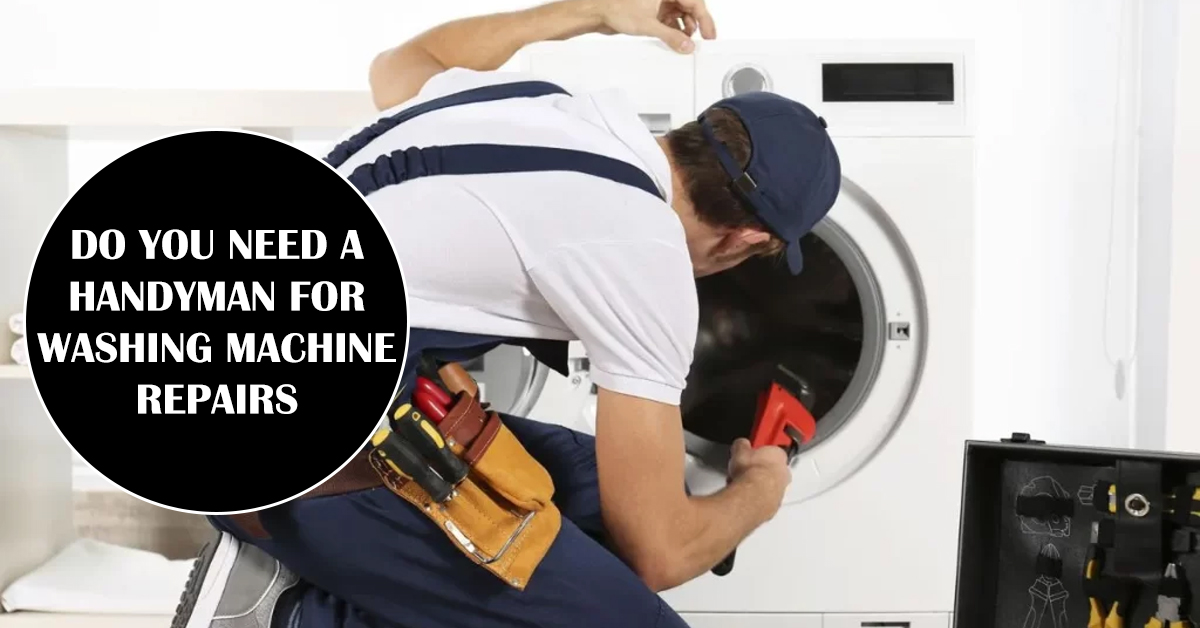Prioritizing Home Maintenance Tasks
Home maintenance is about staying organized and keeping your home in good shape. Make sure you have a seasonal checklist and regularly inspect your HVAC system to prevent costly repairs.

Devising a Seasonal Maintenance Checklist
Creating a seasonal maintenance checklist helps you stay on top of important tasks throughout the year. In spring, check your roof for damage and clean gutters. Summer is a good time to test your AC and check for leaks in your plumbing system. During fall, focus on clearing leaves from your gutters and insulating pipes to prevent freezing. Winter calls for regular snow removal and ensuring that heating systems work efficiently. Prioritizing tasks according to the season allows you to address issues before they lead to bigger problems, saving you time and money.
Recognizing the Importance of Regular HVAC Inspections
Regular HVAC inspections are essential for maintaining energy efficiency and comfort at home. Inspect your system in the fall and spring to ensure it’s ready for temperature changes. Cleaning or replacing air filters every few months improves air quality and efficiency. A well-maintained HVAC system reduces the risk of breakdowns, lowering repair costs and extending the unit’s life. By making HVAC checks a priority, you ensure your home stays comfortable year-round, while also managing energy bills effectively. Regular inspections can identify small issues before they become major problems.
Protecting Your Home from Water Damage
Preventing water damage can save you from costly repairs and keep your home safe. This section highlights essential practices like proper gutter maintenance and roof inspections, which are crucial in protecting your property from water-related issues.
Ensuring Proper Gutter Maintenance and Roof Inspections
Gutter Maintenance Strategies
Proper gutter maintenance is essential to prevent water damage and protect your home’s structure. Key strategies include:
- Regular Cleaning: Clean gutters at least twice a year, particularly in the spring and fall, to avoid clogs that cause water overflow and damage to roofs, walls, and foundations.
- Using Gutter Guards: Invest in gutter guards to minimize debris buildup. These tools reduce cleaning frequency and ensure smooth water flow.
- Developing a Maintenance Schedule: Inspect gutters routinely for signs of rust or leakage. Address these issues promptly to strengthen your home’s defenses against water damage.
Well-maintained gutters efficiently direct rainwater away from your home, preventing costly repairs due to pooling or seepage.
Conducting Thorough Roof Inspections
Regular roof inspections are a proactive strategy to safeguard your home and prevent costly repairs. Key tips include:
- Schedule Inspections: Inspect your roof at least twice a year using binoculars or hire a professional for safety and accuracy.
- Focus on Problem Areas: Pay close attention to areas around chimneys and skylights where leaks are common. Look for missing or loose shingles and visible damage.
- Professional Assessments: Consider hiring professionals for a detailed evaluation. They can identify potential issues that may not be obvious during a DIY inspection.
Early detection and repair of roof damage prevent minor issues from escalating into significant problems, ensuring your home remains safe and dry.
Avoiding Common Mistakes in Exterior Maintenance
Taking care of your home’s exterior ensures it stays looking great and protects it from damage. Focusing on surface cleaning and lawn care helps maintain curb appeal and prevent bigger problems down the line.
Addressing Cracks and Power Washing Surfaces
Cracks in walls, driveways, or pathways can worsen over time, letting moisture in and weakening the structure. Check these areas regularly, and fill in any gaps or cracks you find to prevent further damage. Use appropriate sealants for long-lasting protection.
Dirt and grime build up on surfaces like siding and decks. Power washing can effectively remove these, but be careful not to damage surfaces. Use the correct settings and distance to clean without harming wood or paint. Regular cleaning helps maintain the exterior’s appearance and prolongs its life.
Implementing Effective Lawn Care Practices
A well-maintained lawn boosts your home’s curb appeal and prevents issues such as weed invasion and patches. Mow your lawn regularly, keeping grass at a recommended height to promote healthy growth. Overcutting can stress the grass and invite weeds.
Proper watering is crucial for a lush lawn. Water deeply, but infrequently, to encourage deep root growth. Early morning or late afternoon is the best time to water, which minimizes evaporation. Fertilize during growing seasons with the right nutrients to keep your lawn thriving.
By following these guidelines, you can keep your home’s exterior in excellent condition, enhancing its beauty and longevity. Regular attention to cracks and proper washing keep surfaces clean, while effective lawn care keeps your yard healthy and attractive.
Maintaining Indoor Safety and Efficiency
Keeping your home safe and energy-efficient is crucial for your well-being and financial health. Smoke and carbon monoxide detectors need regular checks to ensure they work properly, while appliance maintenance can prevent costly repairs. Let’s break down these areas step-by-step.
Prioritizing Smoke and Carbon Monoxide Detectors
Essential Safety Practices
Smoke detectors and carbon monoxide alarms are critical for safety. Follow these key steps:
- Monthly Checks: Test alarms monthly using the built-in test button to confirm functionality.
- Annual Battery Replacement: Replace batteries at least once a year, even if they seem fine.
- Proper Placement: Install smoke detectors on every floor, inside large rooms, and near bedrooms. Carbon monoxide detectors should be placed near sleeping areas.
- Routine Cleaning: Use a vacuum or soft brush to prevent dust build-up that could affect performance.
- Manufacturer Guidelines: Follow the manufacturer’s maintenance and replacement instructions for optimal safety.
Ensure detectors are high on walls or ceilings for best results. Regular checks and cleaning keep your home safe from fire and gas hazards.
Managing Appliance Maintenance and Sediment Accumulation
Keeping Appliances Efficient
Regular appliance maintenance helps prevent unexpected breakdowns and improves efficiency. Key steps include:
- Water Heater Maintenance: Drain the water heater annually to remove sediment and maintain efficiency.
- Refrigerator Coils: Clean coils with a coil brush to enhance cooling and reduce energy consumption.
- Seal Checks: Inspect seals on refrigerators and ovens for cracks or looseness. Replace damaged seals to prevent energy loss.
- Cleaning Agents: Use appropriate cleaning agents for each appliance to avoid damage and ensure optimal performance.
Incorporate these tasks into routine cleaning to keep your appliances functioning efficiently and extend their lifespan.
Adopting the Right Approach to DIY Repairs and Maintenance
Approaching DIY repairs and maintenance with a clear plan is essential for effective home care. Proper timing and using the correct products can prevent unnecessary hassles and expenses.
Understanding the Impacts of Procrastination on Maintenance
Procrastination is a common mistake in home maintenance. Putting off small repairs, like fixing a leaky faucet or sealing drafty windows, can lead to bigger problems. These small issues can escalate into significant damages, often requiring costly repairs.
Regular checks can help you catch problems early. This means making a schedule to inspect your home for potential issues regularly. It’s important to remember that maintenance is usually less expensive than repairing damage that has been ignored. Tackling minor issues promptly keeps your home in good shape.
Choosing Appropriate Cleaning Agents
Selecting the right cleaning agents for your home is crucial. Using harsh chemicals, especially on surfaces like windows, doors, and floors, can cause long-term damage. Instead, use products designed for specific materials, like a gentle cleaner for wooden surfaces.
It’s wise to carefully read product labels to ensure compatibility with materials in your home. For example, glass cleaners are best suited for windows to avoid streaky finishes. By using the correct cleaning agents, you protect your home’s surfaces and extend their lifespan, avoiding the need for premature replacement or repair.
Frequently Asked Questions
Home maintenance is essential for keeping your house safe and comfortable. Here are answers to common questions about key tasks, common mistakes, safety tips, and strategies to simplify the process.
1. What are the essential home maintenance tasks that should be performed regularly?
Regular maintenance tasks include:
- Inspecting your HVAC system for efficiency
- Cleaning gutters to prevent water damage
- Checking smoke detectors and replacing batteries
- Examining your roof for missing shingles or leaks
- Sealing windows and doors to reduce drafts and save energy
2. What are common mistakes homeowners make during routine home maintenance?
Common mistakes include:
- Neglecting regular HVAC maintenance
- Ignoring small leaks that could worsen over time
- Overestimating DIY skills for complex repairs
Avoiding these mistakes can prevent bigger problems and costly repairs.
3. How can you ensure safety while performing home maintenance activities?
Follow these safety tips:
- Use the right tools for the job
- Wear protective gear, such as gloves and safety goggles
- Hire a professional for tasks involving electrical or structural repairs
4. What are some tips for simplifying the home maintenance process?
Simplify your maintenance routine by:
- Creating a maintenance calendar to track tasks
- Using apps or reminders to stay organized
- Hiring professional help for time-consuming or complex jobs
5. How often should household maintenance checks be scheduled?
Schedule maintenance checks as follows:
- Seasonally: AC check-ups in spring, gutter cleaning in fall
- Annually: Roof inspections and chimney cleaning
6. What strategies can homeowners use to efficiently manage home upkeep?
Efficient home upkeep strategies include:
- Prioritizing urgent repairs to avoid costly damage
- Budgeting for maintenance to prevent unexpected expenses
- Hiring a handyman for routine inspections and repairs


